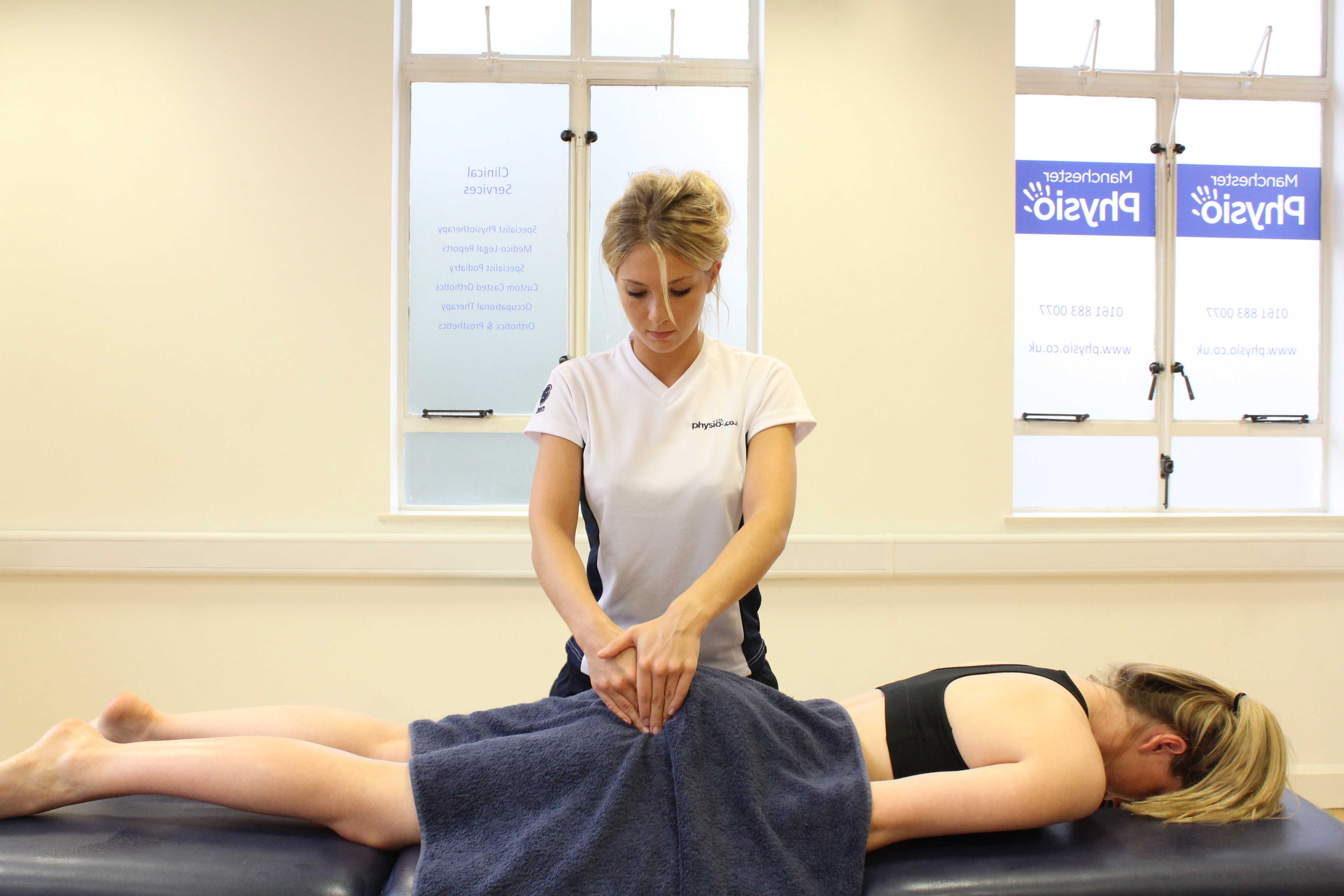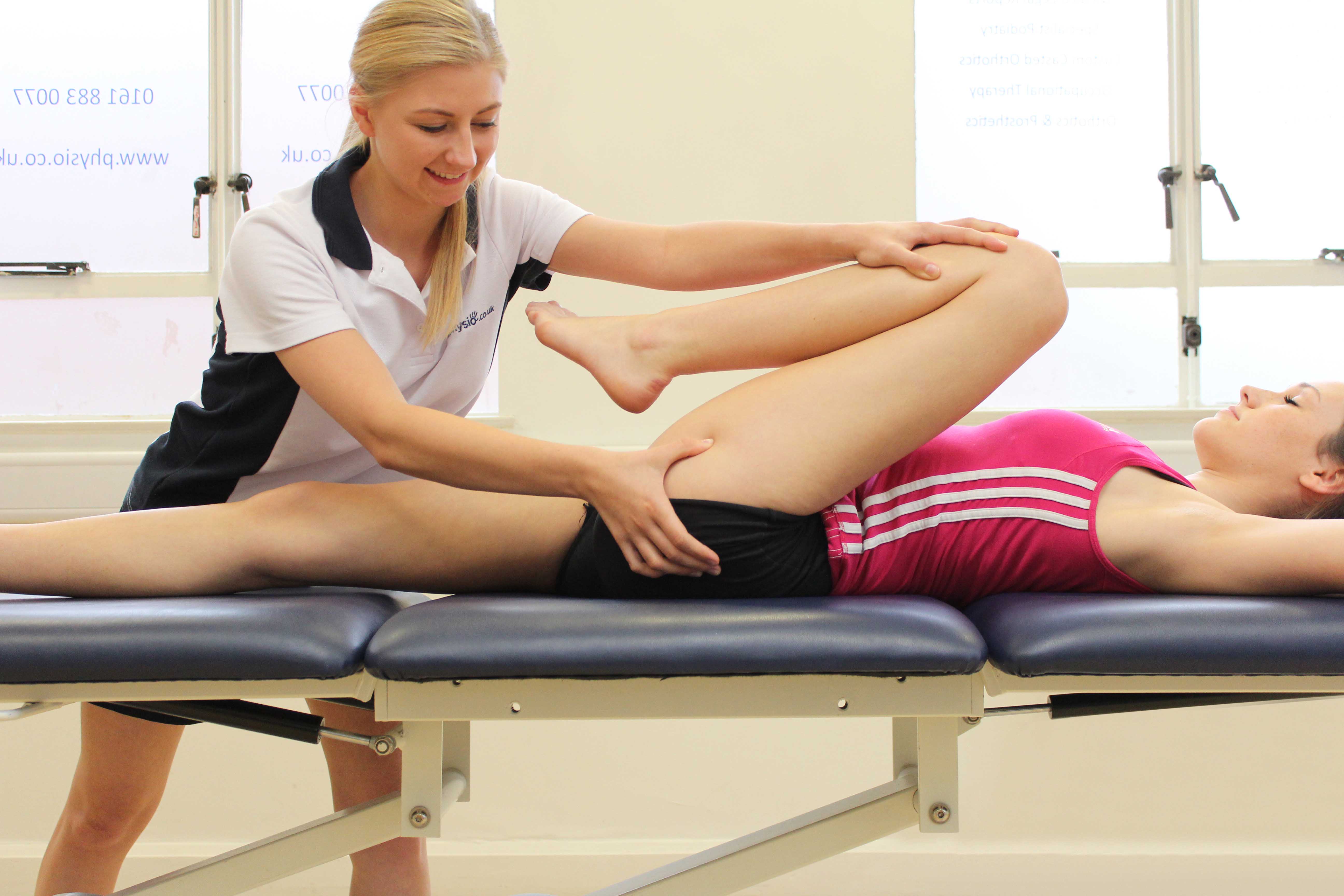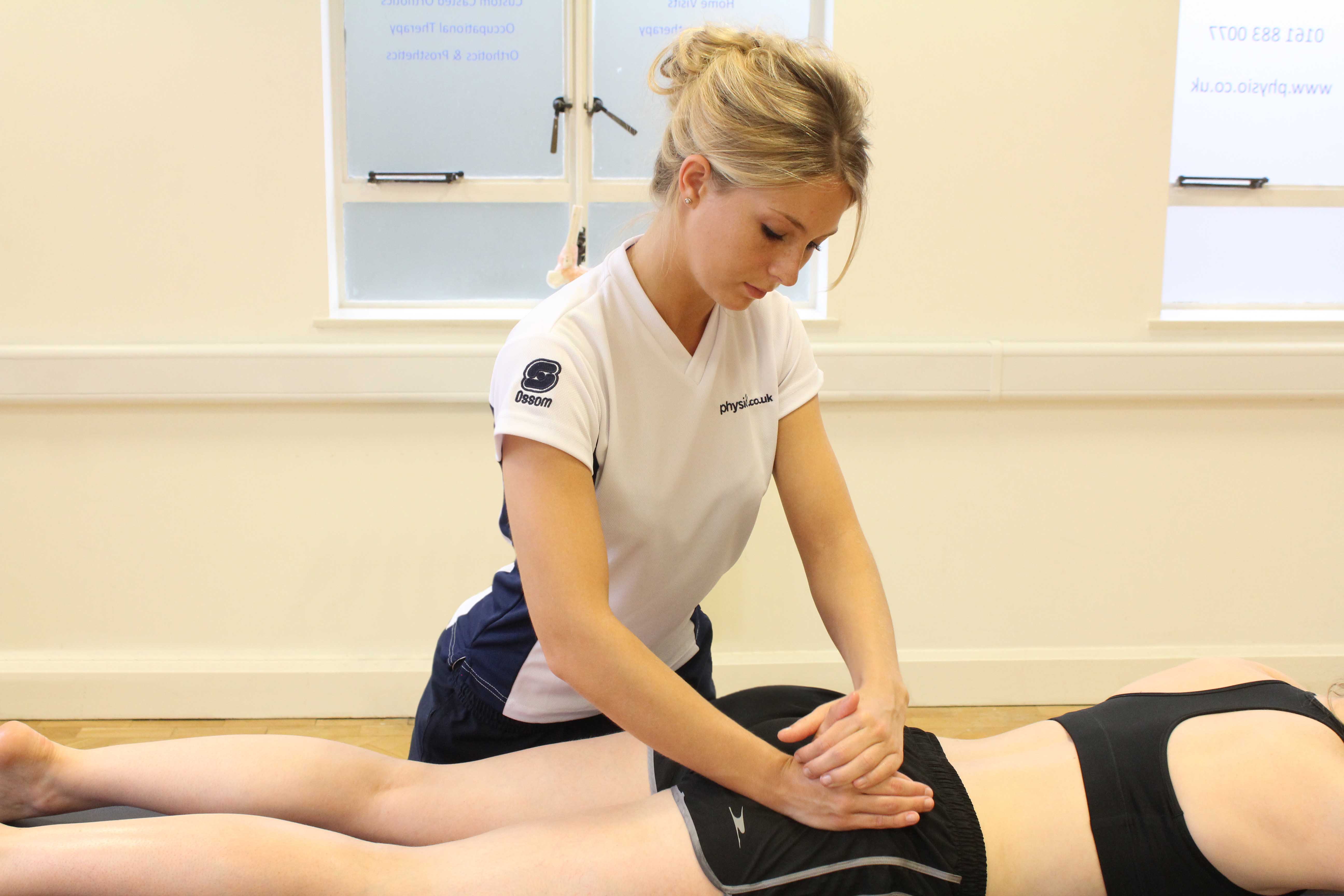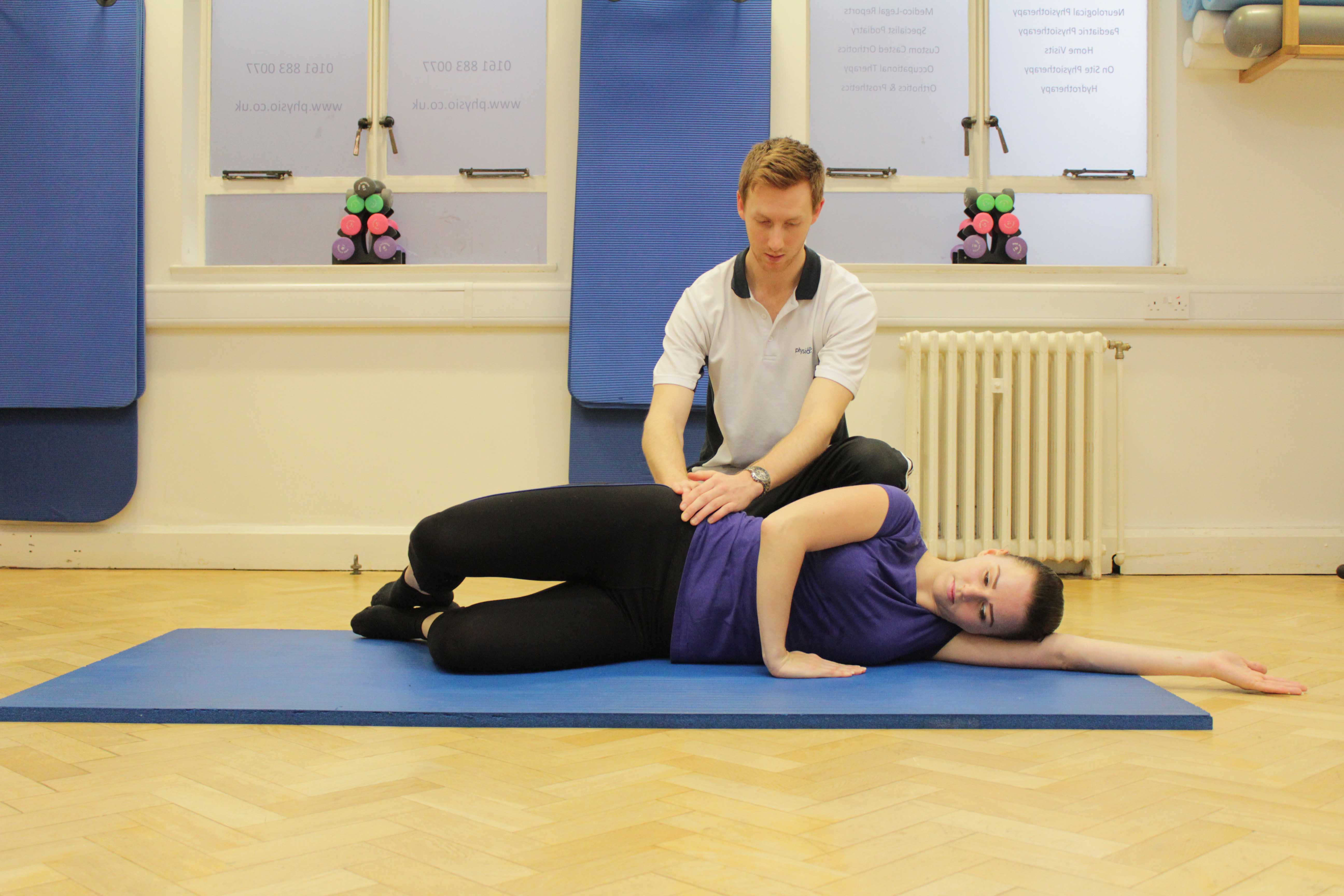What is a piriformis strain?
A piriformis strain is a tear in one or more of the muscles fibres that make up the piriformis muscle. Physiotherapy can successfully treat the symptoms of a piriformis strain.
 Above: Deep tissue massage of the piriformis and gluteus maximus muscle by specialist therapist
Above: Deep tissue massage of the piriformis and gluteus maximus muscle by specialist therapistHow does a piriformis strain happen?
The piriformis is a deep muscle in the hip area that connects from the sacrum to the femur. It acts to rotate and abduct the hip and therefore is a very important stabilising muscle. Piriformis strains often occur due to overuse injuries and repeated jumping, sprinting and lunging actions.
 Above: Deep tissue massage of the gluteus maximus muscle by specialist therapist
Above: Deep tissue massage of the gluteus maximus muscle by specialist therapistWhat are the symptoms of a piriformis strain?
A deep ache or pain is commonly felt in the buttocks area and this can sometimes be experienced in the back of the thigh, leg and foot. It may be difficult to climb stairs, change directions and perform jumping or squatting movements. The area can be tender to touch and the more superficial muscles such as gluteus maximus may go into spasm. Other symptoms include:
What should I do if I have a piriformis strain?
If you suspect you may have a piriformis strain, you should see a physiotherapist as soon as possible. They can provide you with a full assessment and be able to accurately diagnose your injury in order to develop a treatment plan for you. Ice packs or frozen peas wrapped in a wet towel may reduce the pain and any swelling around the area. In more serious injuries, an MRI scan may be necessary to confirm the diagnosis.
 Above: Deep tissue massage of the piriformis and gluteus maximus muscle by specialist therapist
Above: Deep tissue massage of the piriformis and gluteus maximus muscle by specialist therapistPhysiotherapy treatment for a piriformis strain
The main physiotherapy treatment for a piriformis strain is a personalised strengthening and stretching programme. This will be developed by your physiotherapy depending on your current abilities and goals. Other treatments include massage and electrotherapy techniques such as ultrasound, to reduce the pain and optimise the healing process. Other treatments include:
What shouldn’t I do if I have a piriformis strain?
If you notice any of the above symptoms and think you have a strained piriformis muscle, you should immediately stop any of the activities that aggravate your symptoms. This includes jumping, sprinting and lunging movements which may be key features of your sport or hobbies. Do not ignore your symptoms as this will delay your recovery and could potentially make the injury more chronic (long-term) and difficult to resolve.
 Above: Strengthening exercises for the gluteus muscles supervised by a therapist
Above: Strengthening exercises for the gluteus muscles supervised by a therapistCould there be any long-term effects from a piriformis strain?
If you do not begin a physiotherapy programme as soon as you start noticing symptoms of a piriformis strain, your injury is likely to become chronic and more persistent. This will lengthen the duration of your rehabilitation and it will take you longer to return to your sport or hobbies.
To arrange a physiotherapy assessment call Physio.co.uk on 0330 088 7800 or book online.

 0330 088 7800
0330 088 7800





































